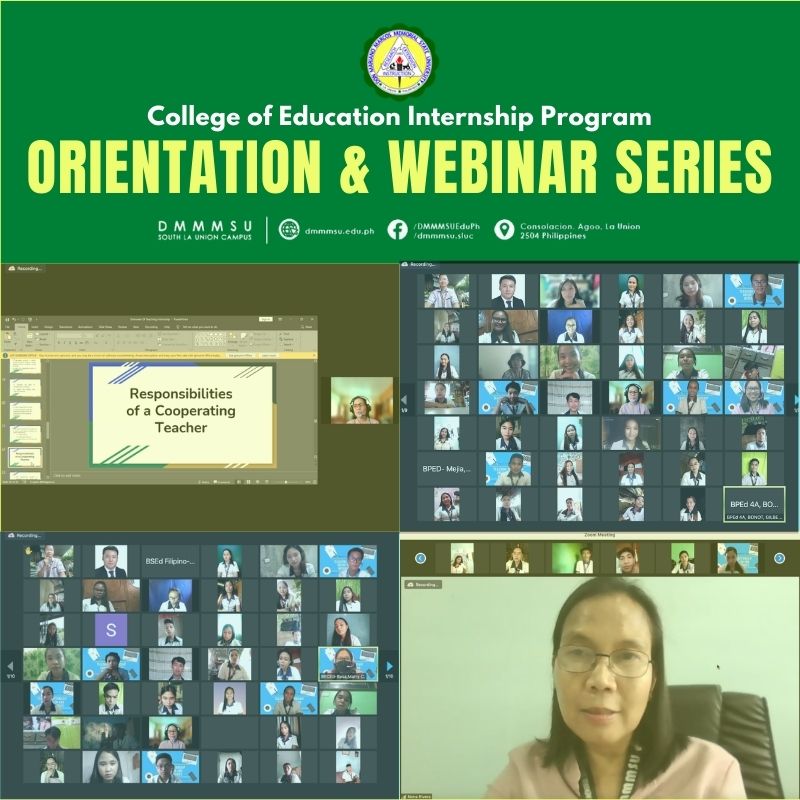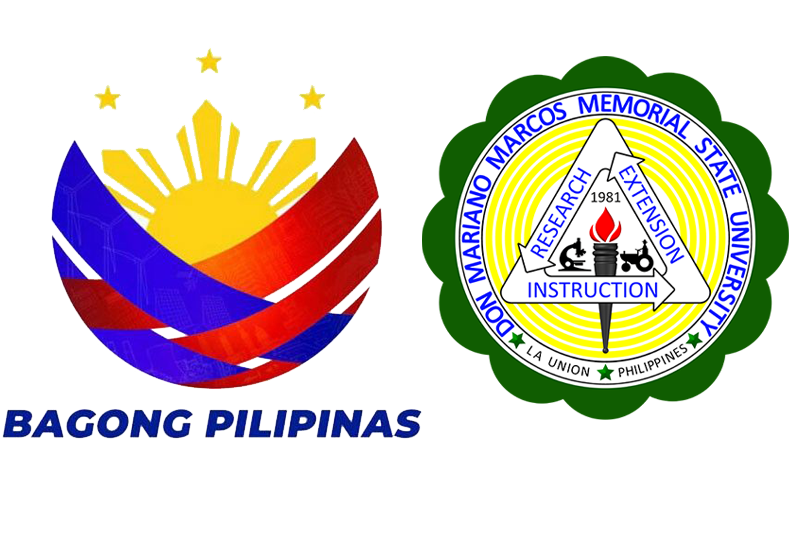For more than a year now, the students of the College of Education continue to gain a new type of college experience after campuses were shut down amid the coronavirus pandemic. Their usual commute has been reduced to the time it takes for them to boot up their laptop, their classrooms transformed into Google Meets and many class conversations now take place on discussion boards. And for the College of Education seniors, the conduct of teaching internship has also become a new kind of challenge in this virtual era.

Since the College recognizes the pivotal role of internship in the completion of a professional course such as education, CE’s internship program took off last September 6, 2021 with an 8-day Orientation and webinar series.
During the first meeting, the internship overall officers were elected in addition to the election of officers per academic program which was presided by the respective college supervising teachers.
In the succeding sessions, experts of the relevant topics served as lecturers to better equip the practice teachers with the essentials of Teaching Internship before their virtual deployment to the laboratory schools.
In an interview, the College Dean, Dr. Nona M. Rivera, remarked that although the pandemic added complications with the conduct of the internship program, this unique circumstance presented an opportunity for the College to introduce various reforms, with compassion and understanding, but without sacrificing the core nature of the teaching internship.
Justine Joy Aspiras, a Bachelor of Secondary Education (BSEd) Science student shared that she finds teaching internship as a helpful course that prepares future teachers like her in their teaching journey.
“Teaching Internship in this virtual era will also test the patience and participation of the learners as well as the teachers, it’s crucial yet worthwhile,” she added.
She further elaborated that the virtual classroom can never replicate the actual classroom.
“It is too different,” she lamented.
“The cost of the data allowance, internet connectivity, lack of gadgets are some of the downsides of this activity,” she added.
Although the College acknowledges these disadvantages of virtual internship, the administrators believe that the internship must push through because internship provides direct experiences to the practice teachers on various roles of a teacher while it also offers an opportunity to integrate the theoretical knowledge on strategies and methods to be delivered in the real life situation.
For Abegail Gali, a BSEd English major, she is happy with the virtual internship because at least, through this experience, the future teachers like her get to be tech savvy.
“I find it challenging because of the situation we are in. Indeed, it is very hard because new approach is needed to make sure that the learners are adapting knowledge in the lesson we are going to discuss,” she added.
In addition to the College of Education seniors, 6 foreign students from Indonesia’s Ganesha University of Education (Undiksha) under the Exchange Virtual Teaching Practice Program were delegated to the Elementary Laboratory School and Laboratory High School of the College of Education to complete their internship programs under the tutelage of their cooperating teachers.
The orientation and webinar series were made possible through the team-up of the Teaching Internship overall coordinator Mrs. Marry Basa and the chairs of the various College of Education programs. (Zander Mercado)
